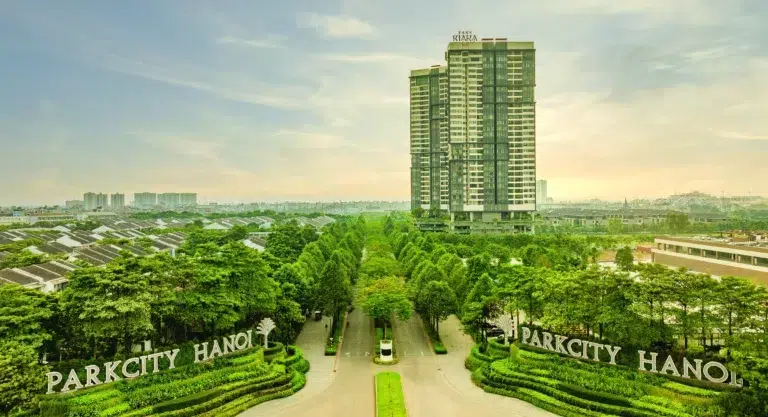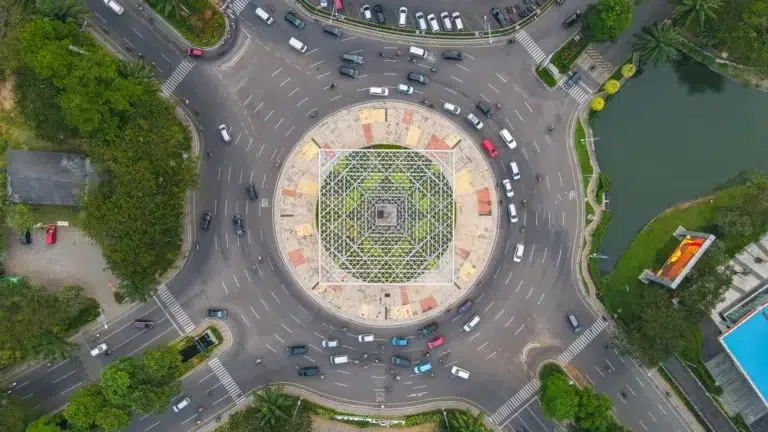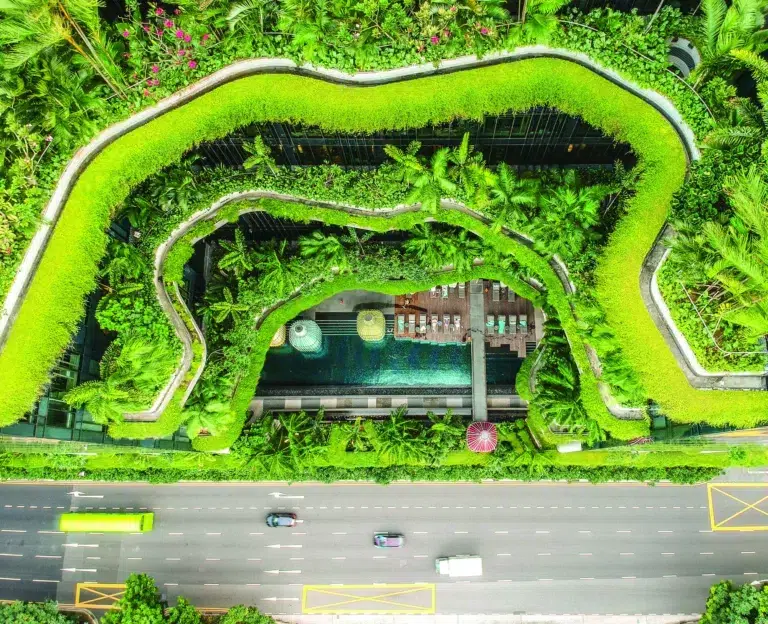Women have what it takes to lead and build
This article is based on the Women Who Lead and Build Fireside Chat at the PropertyGuru Asia Real Estate Summit originally presented on 8 December 2021.
Female leaders make a strong case for why women should rule in male-dominated fields

Landscape architect Kotchakorn Voraakhom, recipient of the 2021 PropertyGuru Visionary of the Year and CEO and founder of Porous City Network, and Jean Jacquelyn de Castro, CEO of ESCA Incorporated, shared their insights on sustainable development and discussed why it is important that women gain more visible roles in engineering and architecture, traditionally male-dominated industries.
Accelerating women in male-led industries
Kotchakorn and Jean agreed that while the engineering and construction industries in Thailand and the Philippines remain male-dominated, women have more opportunities than ever before.
The role of women in these industries is not just to lend their knowledge and actively participate in digitalisation strategies but also to champion their fellow women. Jean noted that women are redefining success to be more inclusive and sustainable. But she lamented that, unfortunately, women are still relatively invisible in the field of urban planning.
Kotchakorn added that the pandemic revealed how wide the gender gap is. She also said that as global citizens, women should have the opportunity to step up and have a seat at the table so they can empower young leaders and inspire each other.
Designing for sustainability
Thailand and the Philippines have been heavily affected by climate change, which has been taking its toll on people’s lives and properties.
Porous City Network, which was founded by Kotchakorn, focuses on designing and increasing urban resilience, which directly addresses problems and targets specific communities.
“I established Porous City Network because I felt that many people were underserved because of the common business goals of maximising profits and reducing construction costs. In countries like Thailand and the Philippines, this is evident in the substandard living conditions in slum areas. It is as if people’s right to afford a good home in the city has been taken away.”
She added that the solutions developed by the company are based on resilience and flexibility rather than fear. “I think that as women, we are more in touch with nature. We are more attuned to the flexibility, change, and care it needs.”
Regarding the perception that fear hinders logic, Jean noted, “We can’t design to control, but we can design with nature to build a more sustainable home.” This resonated across communities, especially during the pandemic when there was typhoon after typhoon.
Related: Raise a glass to women who raise the roof
Women taking charge
When it comes to transforming cities post-pandemic and dealing with other social challenges, Jean and Kotchakorn asserted that women simply must be heard.
“Women offer a different perspective. We deserve to be part of the conversation because our distinctive approach can make a difference,” said Jean.
Women have the tools to tackle issues like climate change, sustainability, and creating a better and safer environment, especially post-pandemic. But because many people haven’t acclimated yet to that reality, women who push for positive change tend to face challenges. “Tackling climate change requires the right mindset. The conversation should not just be about ‘high technology and high maintenance,’” Kotchakorn shared.
She added, “Cultural preservation is crucial, and I believe that we shouldn’t be so afraid to adopt other people’s technological innovations. We must also remember to take lessons from the past.”
More than just aesthetics
Kotchakorn explained that their profession is more than meets the eye; beyond designing urban landscapes, they also help improve communities’ quality of life. “The goal of each project is more than just aesthetic improvement. There is a heavy focus on urban design because we are experts in the ecology, landscape, and dynamics of the land. But more importantly, we are all about maximising the potential of the land to meet and exceed our clients’ needs.”
She pointed out that innovation is crucial in their industry because there are always bigger, more pressing issues that need better solutions.
Jean concluded by saying that women in the industry should embrace their power and not be afraid to have a voice because they do not lack the knowledge and expertise. They can support each other’s advocacies for making things better. They only need the courage to release their ideas into the world.
As a landscape architect, Kotchakorn mentioned that she makes sure that their projects consider the communities’ well-being and offer a sustainable solution to protect the environment.
Related: Women in power take centre stage at PropertyGuru Asia Real Estate Summit VIP Cocktail Party
A woman’s work is never done
When asked about the ways women from across the region have inspired them, Kochakorn stated that she and her team were presented with various solutions that her own city can benefit from. And apart from growing as a landscape designer, she also earned a learning experience that has helped her become better informed.
She also believes that it is important to give back to the community and to work towards inspiring the younger generation so they can prepare as they embark on a career in the industry. Ultimately, creating solutions and testing them should transcend gender boundaries and rather shift the focus on championing a better future.
That fact is that not many people are aware of the trials and tribulations behind the success of female leaders in Kochakorn’s and Jean’s respective fields. It is a journey of learning and empowerment, especially in male-dominated spaces.
Jean left on an important note that as women, their jobs are never done. Apart from being leaders, they are also responsible for spearheading innovation in their industries to cater to everyone. After all, every single person, wherever they may come from, deserves protection from environmental and health hazards.
This article was originally published on ARES White Paper Volume 2. For more information, visit AsiaRealEstateSummit.com or email [email protected].
Recommended
Hanoi’s Park Kiara redefines urban living with green, people-centric design
Park Kiara in Hanoi is a repudiation of low-density, car-dependent suburban sprawl
ARES White Paper Volume 3: The era of adaptive reinvention
Pioneering sustainable and innovative practices in urban development
ARES White Paper Volume 2: Unravelling the power of data revolution in real estate
Insights on proptech, smart cities, and sustainable development
ARES Digital White Paper Volume 1: The fundamentals of responsible building
Green and climate heroes join forces to discuss how Asia Pacific can weather the current environmental crises and the looming effects of climate change






